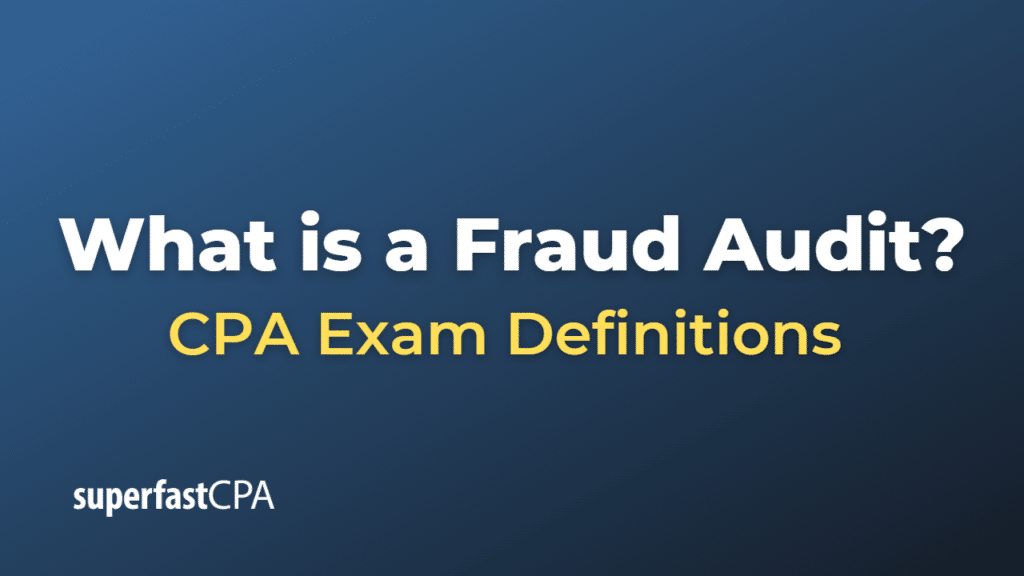Fraud Audit
A fraud audit is a detailed examination of the financial records of a business or individual to detect if any fraudulent activities have taken place. It’s a type of forensic audit, often conducted by specialized forensic accountants or auditors who have extensive knowledge of fraud detection techniques and legal procedures.
A fraud audit goes beyond a traditional financial audit, which primarily seeks to verify that financial statements are accurate and comply with accounting standards. In contrast, a fraud audit specifically aims to uncover evidence of fraud, such as misappropriation of assets, fraudulent financial reporting, or other illicit activities.
Fraud audits may involve a range of activities, such as:
- Analyzing Financial Statements: The auditors scrutinize financial statements for any discrepancies or irregularities that could indicate fraudulent activity.
- Investigating Discrepancies: If the auditors find any red flags in the financial statements, they’ll investigate further to determine whether fraud is the cause. This might involve interviewing employees, reviewing documentation, or analyzing specific transactions in detail.
- Data Analysis: Auditors may use advanced data analysis tools to detect patterns or anomalies in large volumes of transaction data, which could indicate fraudulent activity.
- Reviewing Internal Controls: The auditors will assess the company’s internal control systems to see if they’re effective at preventing and detecting fraud. Weak or ineffective controls can increase the risk of fraud.
- Reporting: If the auditors find evidence of fraud, they’ll document their findings in a detailed report. This report may be used to support legal or disciplinary actions against the perpetrators of the fraud.
It’s worth noting that while a fraud audit can help to detect fraud, it cannot guarantee to catch every instance of fraud. Some fraud schemes can be very sophisticated and difficult to detect, even with a thorough audit. However, regular fraud audits can significantly enhance a company’s ability to detect and prevent fraud, helping to protect its assets and reputation.
Example of a Fraud Audit
Imagine a large retail company, let’s call it “RetailCo,” has been noticing a significant shrinkage in their inventory, which is causing a decline in their profits. Suspecting that there might be some fraudulent activity behind this, the company hires a team of forensic accountants to perform a fraud audit.
The team starts by analyzing RetailCo’s financial statements, inventory records, and sales data to look for any irregularities or discrepancies. They notice that the shrinkage seems to be more significant at certain stores and during certain periods of time.
The forensic accountants then conduct interviews with the managers and employees at the stores where the discrepancies are the largest. During these interviews, they learn that the inventory control procedures at these stores are not being consistently followed.
Following this lead, the audit team begins a more in-depth analysis of the transaction data from these stores. Using data analysis tools, they uncover a pattern: high-value items seem to be going missing just after they are received into inventory and before they are logged into the system.
This raises suspicion of an “inside job” – possibly employees are stealing these items before they are officially recorded in the system. The forensic accountants document their findings in a report to RetailCo’s management, recommending a further investigation into the employees involved and an overhaul of the inventory control procedures at these stores.
RetailCo uses the report to take appropriate action, which may include disciplinary actions against the employees involved and implementing better internal controls to prevent future fraud.
This is a simplified example, but it gives a sense of how a fraud audit can help detect fraudulent activity, identify its source, and provide a basis for corrective action. In real-world situations, fraud audits can be much more complex and might involve legal proceedings.













